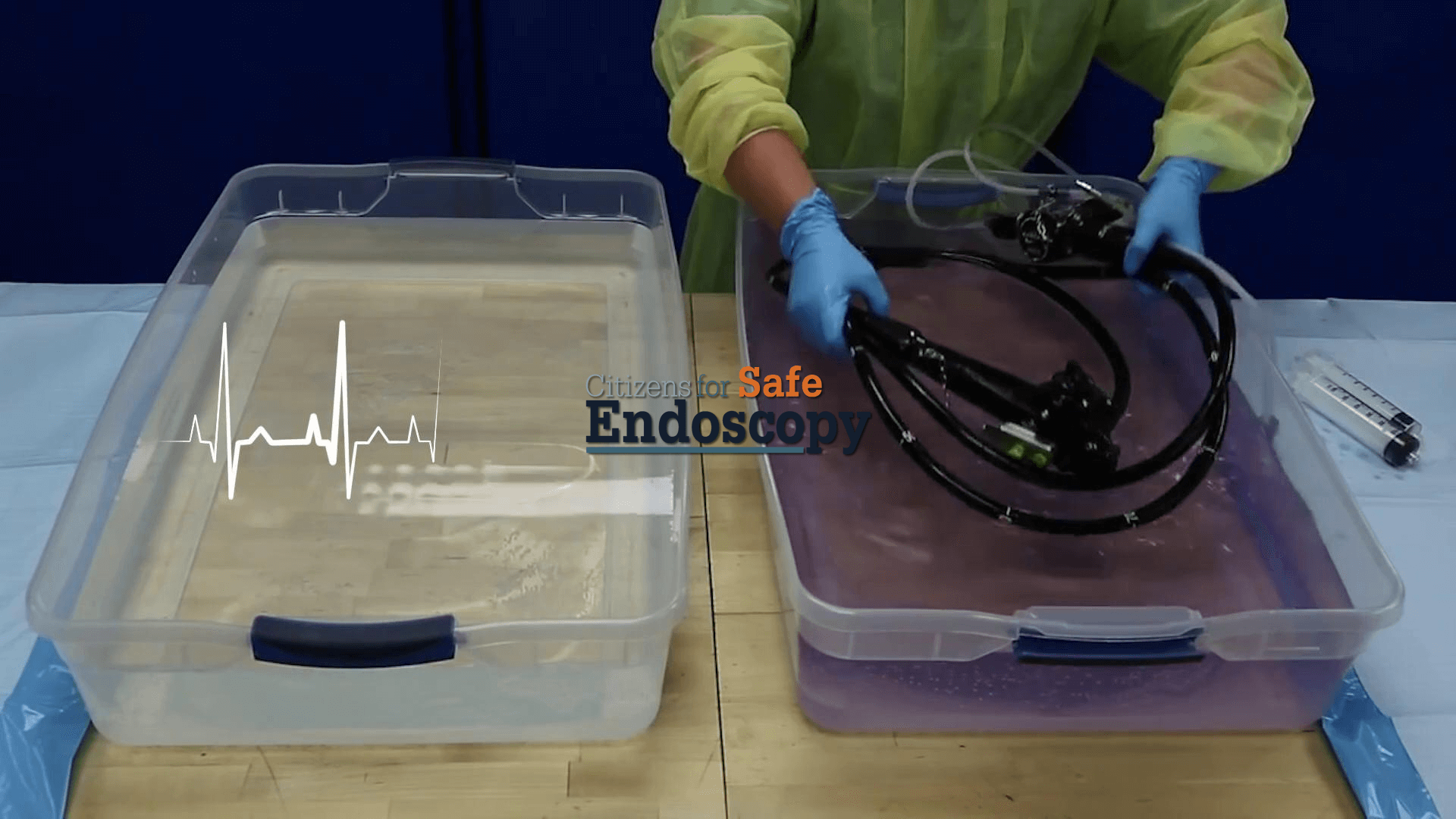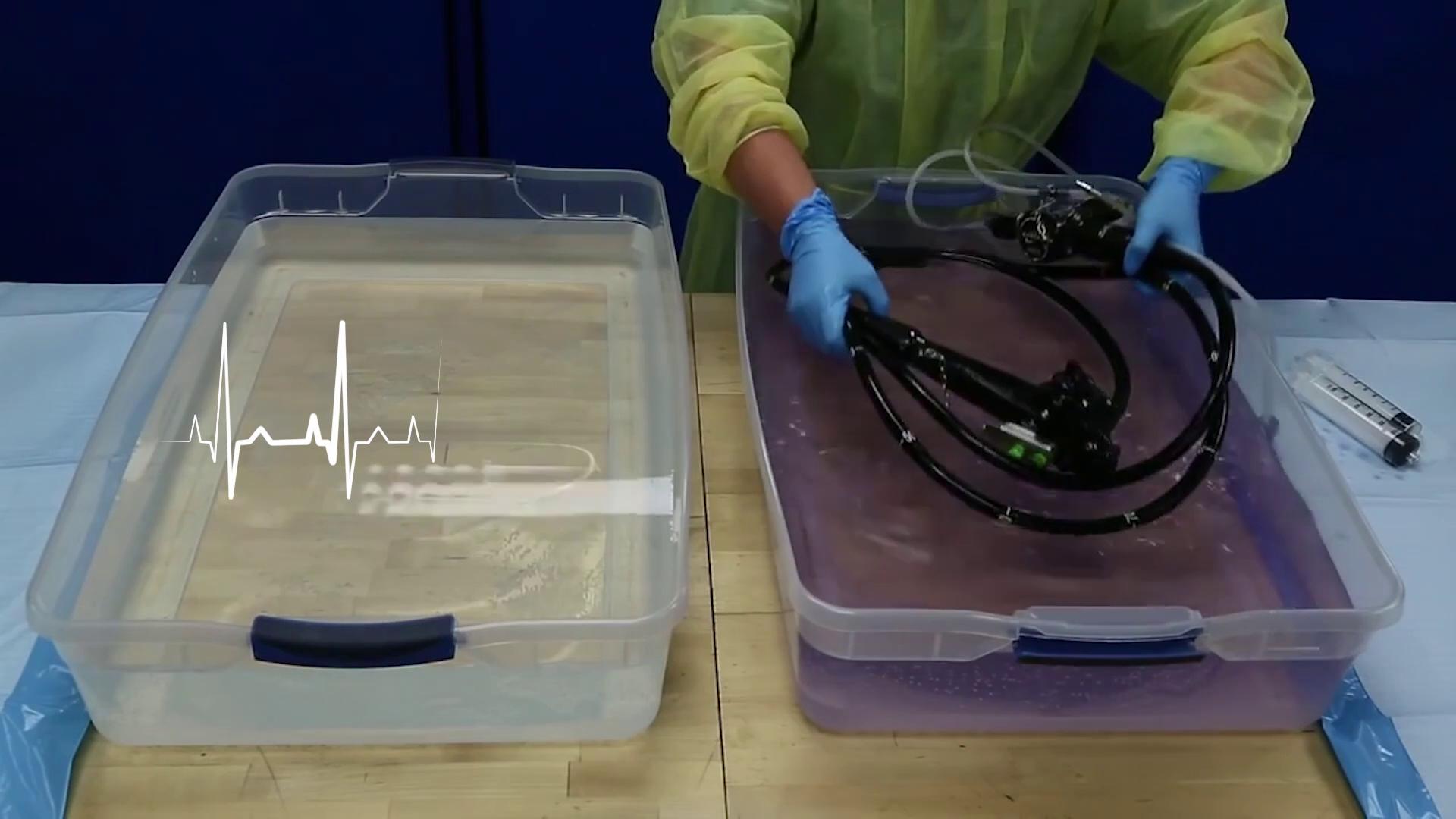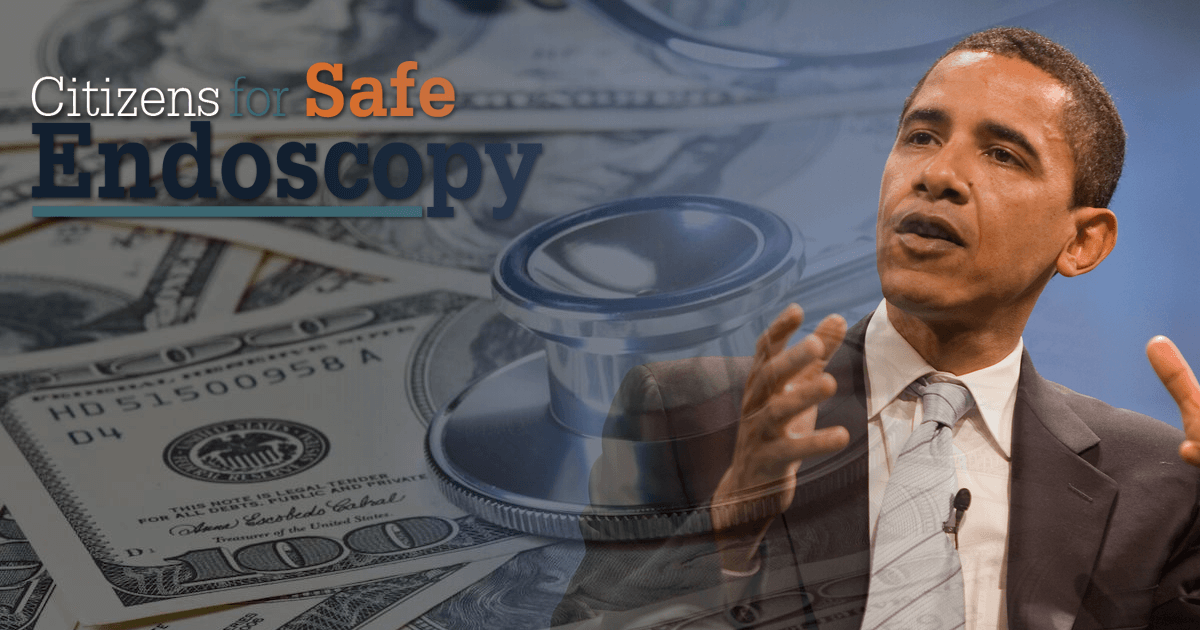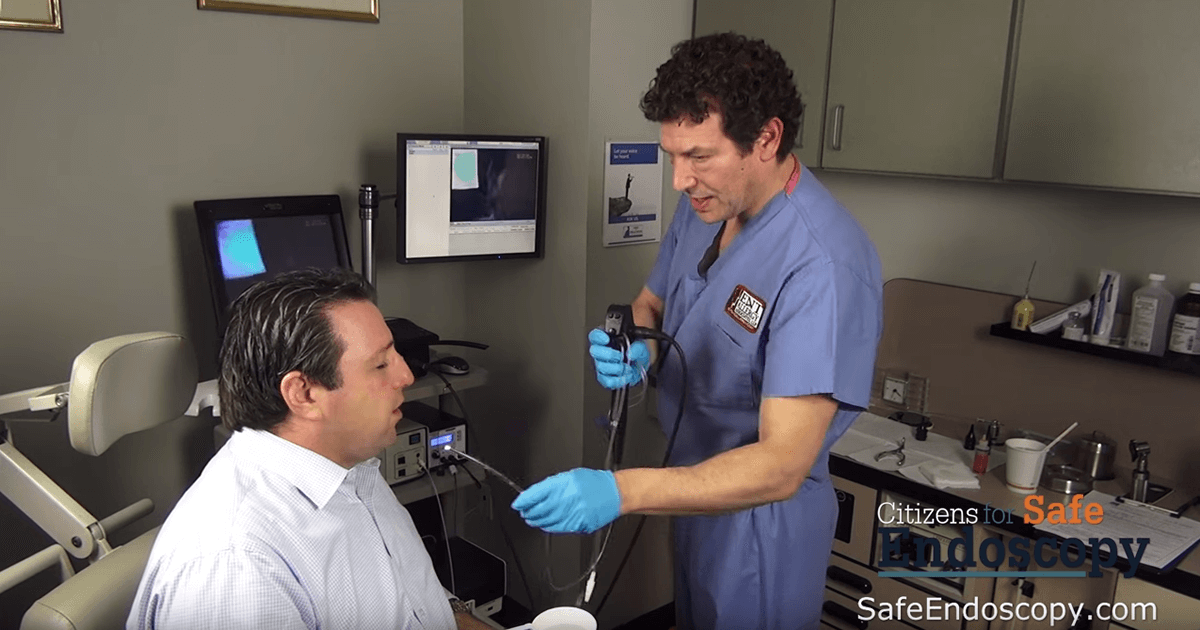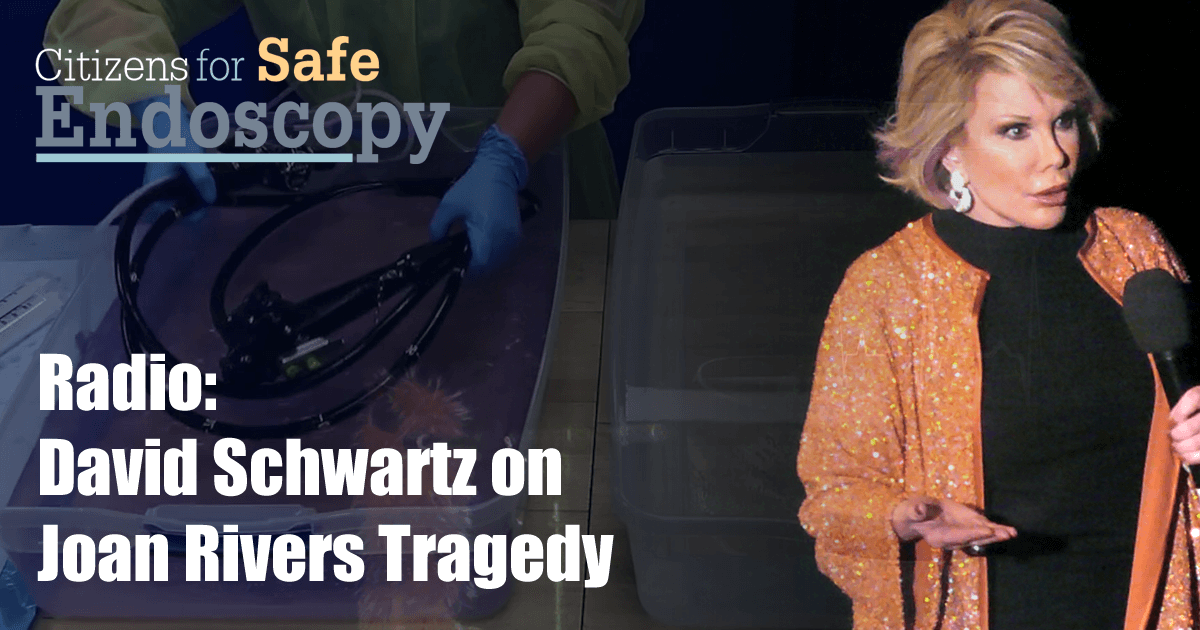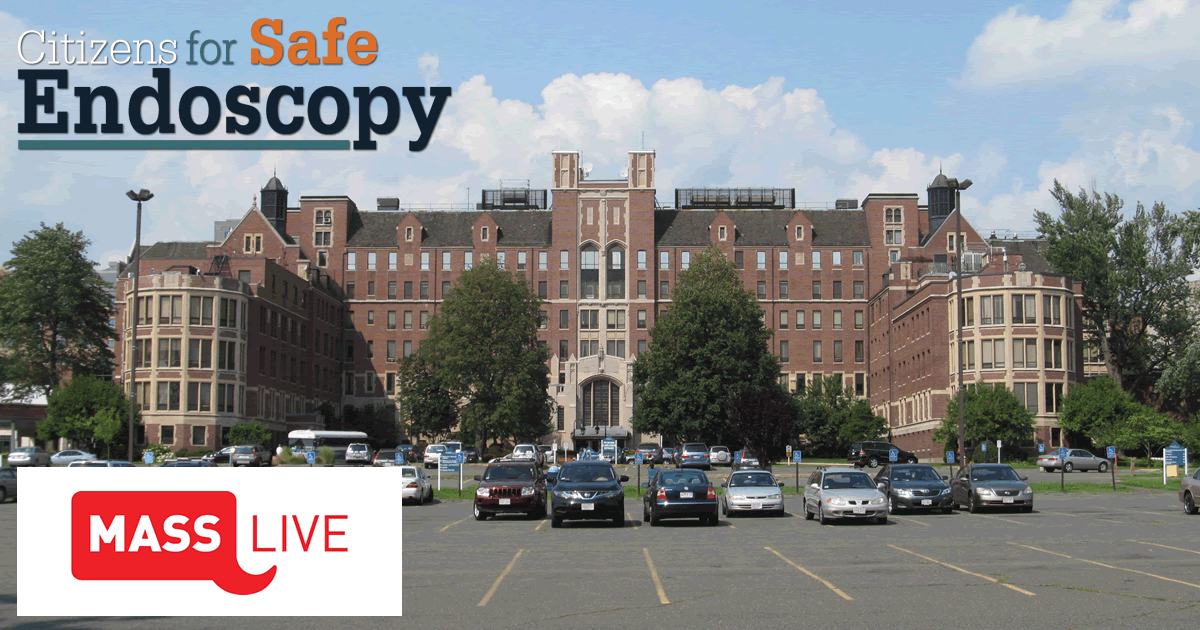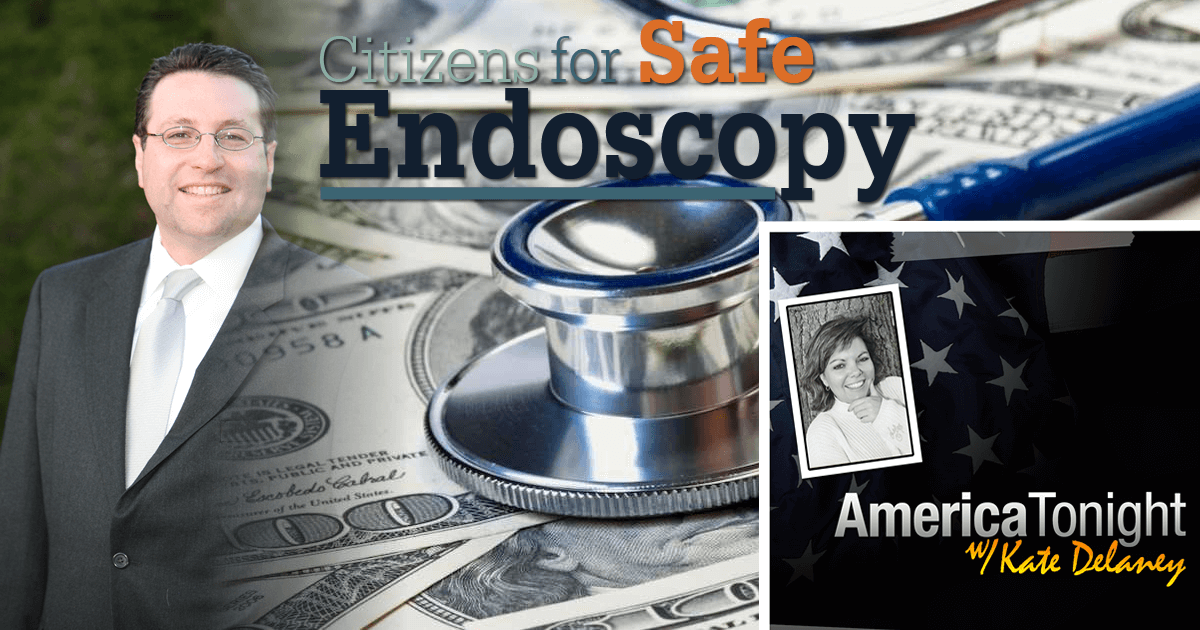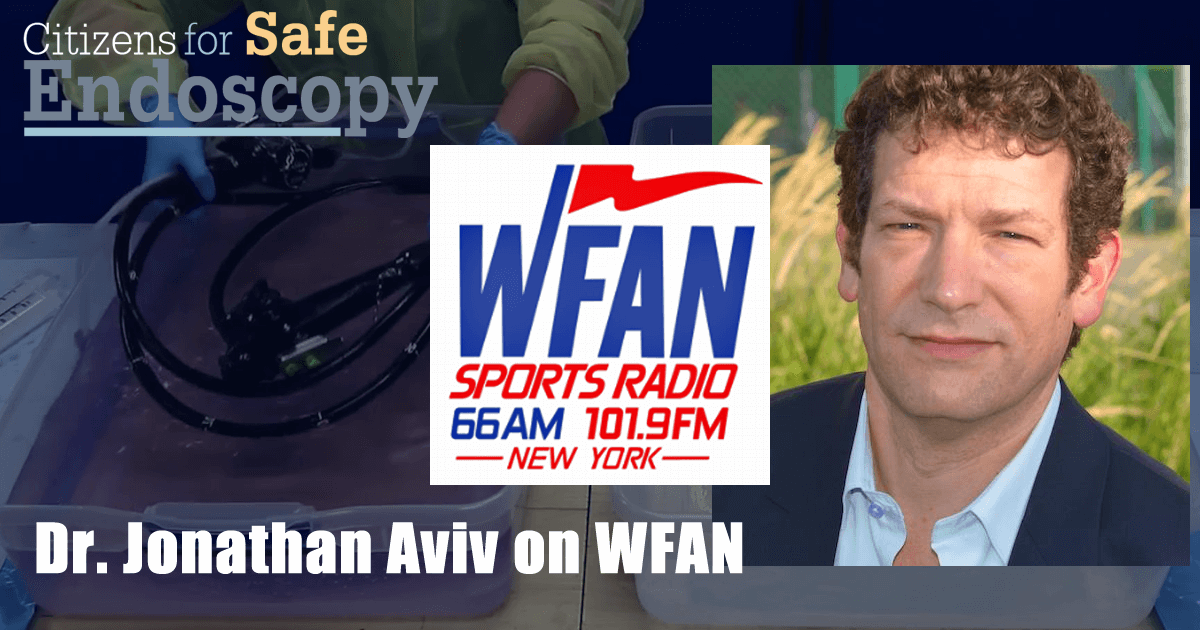The Solution to Safer Endoscopy
Our mission at Citizens for Safe Endoscopy is very simple. We believe that 270,000 Americans are being needlessly infected by non-sterile flexible endoscopes. Our mission is to educate patients that flexible endoscopes are disinfected as opposed to sterilized. Disinfection kills almost all microbial life, but not all. Infections such as Hepatitis, Tuberculosis, HIV, Human Papilloma Virus, and KJD (Mad Cow Disease), can live through the current reprocessing standard of disinfection. Flexible endoscopes have many grooves, nooks, and hard to reach edges that are impossible to clean. When scopes are serviced and taken apart, debris frequently discovered in these allegedly disinfected endoscopes are fecal matter, blood, and mucous. There is no reason why healthy patients are getting sick during colonoscopies, sigmoidoscopies, bronchoscopies, and other endoscopic procedures, when technology exists today to give every patient a sterile and safe endoscopy.
We need to change the standard of care to sterilization and we need a patient bill of rights where every patient is informed about the reprocessing standards of an endoscopy as well as other procedures.
Citizens for Safe Endoscopy is dedicated to preventing all future cases of cross-contamination due to endoscopic procedures. We believe that we can prevent 270,000 healthy patients from getting sick by
- Informing the public of this health epidemic and patients who may not even know that they have contracted a disease from cross-contamination
- Enlist as many people as possible to join our cause to fight for and protect the 15,000,000 people every year who have an endoscopic procedure and to make sure that these endoscopies are safe and sterile.
- Building a coalition of victims, concerned citizens and health professionals to fight against the needless amount of cross-contamination.
- Lobbying for legislation all across the country to change the standard of care in the reprocessing of endoscopes from disinfection to sterilization.
- Prevent this archaic practice and push the medical profession to use the new technology out there to achieve complete sterilization.
- Convince the hospitals, doctors, and other medical facilities to explore all new technologies to achieve standard, including, but not limited to, protective single-use barrier devices.
WHAT IS ENDOSCOPY?
Endoscopic procedures are typically performed on an outpatient basis and generally involve less recovery time and patient discomfort than traditional surgery. The patient benefits and cost savings associated with endoscopy have caused many governmental reimbursement programs and private health insurance plans to encourage the use of endoscopic procedures in a number of medical applications.Endoscopy is a minimally invasive technique that is being used to visually examine patients internally using a probe-like device inserted through the mouth or other orifices. It is used with increased frequency in a growing number of medical applications. Endoscopic therapeutic procedures, unlike more traditional open surgical procedures, can be performed without a major incision, in most cases without general anesthesia, and, therefore, safer and less expensive than traditional surgical procedures.
The Problem
Endoscopes were originally designed for their optics and function, not for cleanability – after all, they are used in non-sterile areas of the body. Endoscope manufacturers are well aware of the problems inherent in their design because in the process of repairing endoscopes, they must remove the stained and contaminated channels. These channels contain blood, mucous, feces and numerous diseases and bacteria. In fact, endoscopes are impossible to sterilize. In fact, your dentist’s drill is much cleaner than an endoscope.
Is there no doctor in Salem, Oregon that performs TNE? I called the only ENT clinic here and they only go look at the voice box area and said you have to go to a GI doctor for esophogeal issues. This is the state capitol and we should not be so behind the times….For heaven’s sake, this should be the “standard of care” for people who do not want the old sedated endoscopy.
Thank you,
– Karen
– Salem Oregon
The Solution
A proprietary flexible endoscope system designed to eliminate the risk of cross-contamination to patients and health-care professional’s also provides quick changeover between patients by eliminating the difficult task of cleaning the endoscopes. The risk of cross-contamination results from the reuse of conventional flexible endoscopes. This system consists of two main components; a proprietary sterile disposable sheath and a reusable flexible endoscope. The endosheath is designed to cover all surfaces of the endoscope that come into contact with the patient and contains the air, water, suction and accessory channels that are a part of conventional flexible endoscopes, thus providing a contamination-free instrument and substantially reducing the burdensome cleaning required of conventional flexible endoscopes. The Sheath technology is not available for all endoscopic procedures, but some doctors who are concerned about this deadly issue use the Sheath regularly for Transnasal Endoscopic procedures (TNE).
What is TransNasal Endoscopy?
Transnasal Endoscopy using digital full screen, CCD and LED technology, combined with a disposable Endosheath (TNE/DE), represents the best and most effective method for esophageal examinations in the current medical environment.
TNE/DE is the only currently available technology that combines:
- Image quality
- Procedure-related cost containment
- Patient and staff safety
- Improved professional reimbursement outcomes
- Control of patient related costs and expenditures
- Diagnostic capability equal to current video-endoscopy
- Improved manpower-related logistics
Over the past 20 years there has been a significant increase in esophageal cancer, in particular adenocarcinoma of the EG junction, driven largely by the continued dramatic increase in reflux-related disease including Barrett’s esophagus. This has heightened the demand for investigative endoscopy to provide early detection, diagnosis and prevention of esophageal cancer.
During this same period of time, there has been a concomitant decline in available manpower (namely the number of Physician-providers), combined with increased competition for skilled Endoscopists’ time due to the burden of screening colonoscopy. In addition, we continue to experience an adversarial insurance environment with accelerated downward pressure on reimbursements, and the increased burden on the patient by factors such as rising premiums, co-pays, and lost productivity and income as the result of time lost due to having to undergo sedated procedures. Read more about TransNasal Endoscopy…
Latest News:
NY Times: Study Finds Growing Reason to Be Wary of Some Reflux Drugs
From The New York Times: Maybe you have seen television ads starring the beefy, affable comedian and actor known as Larry the Cable Guy. In his sleeveless shirt and gimme cap, he’s driving a monster [...]
Morning Consult: David Schwartz on Skyrocketing Health Costs, Obamacare, and the Special Interests
The higher cost of living longer is one important variable that cannot be attributed to the expensive Obamacare jig saw puzzle. But what about the role of the health care industry itself?
VIDEO: Dr. Jonathan Aviv Performs a TNE and The Importance of Safe Endoscopy
Citizens for Safe Endoscopy's David Schwartz talks with Dr. Jonathan Aviv about safer methods of endoscopy and has a TNE performed on camera.
Radio: David Schwartz on TNE and the Tragic Death of Joan Rivers
Citizens for Safe Endoscopy spokesman, David Schwartz on The Ed Tyll Show about transnasal esophogoscopy and the tragic death of Joan Rivers.
Improper disinfection procedures may have exposed 293 Baystate Noble patients to hepatitis, HIV
From Mass Live: WESTFIELD — Baystate Noble Hospital has notified colonoscopy patients that the scopes used in their procedures may not have been properly disinfected. Springfield-based Baystate Health said Friday that because of a lapse in disinfection procedures, 293 [...]
RADIO: David Schwartz on America Tonight Radio – Safer Endoscopy
Citizens for Safe Endoscopy's David Schwartz joins host Kate Delaney to talk about the hidden secret about the dangers of endoscopy and easily available solution the medical industry doesn't want you to know about.
Skyrocketing Health Costs, Obamacare, and the Medical Cartel
How the dominant use of expensive sedated endoscopies sheds light on how special interests in the healthcare industry pass unnecessary costs on to patients.
Dr. Jonathan Aviv discusses upper endoscopy, TNE, and the risk of endoscopic cross contamination on WFAN
Voice and Swallowing Center Clinical Director Dr. Jonathan Aviv discusses upper endoscopy, transnasal esophagoscopy, and the risk of endoscopic cross contamination with WFAN's Bob Salter.
LA Times: Scope maker Olympus faces scrutiny over patient deaths, infections
The industry leader finds itself at the center of superbug outbreaks at U.S. hospitals, including UCLA, where two patients have died and nearly 180 more people may have been exposed to deadly bacteria on contaminated Olympus scopes.
LA Times: Olympus to recall and redesign medical scope linked to superbug outbreaks
From LA Times: Olympus Corp. said Friday that it would voluntarily recall and redesign a troubled medical scope that has been linked to deadly patient infections around the world. The company, which sells about 85% [...]
Would TNE-the Safe Alternative to Endoscopies-Have Saved Joan Rivers?
“New and safer approaches to the diagnosis of esophageal cancer have been developed and perfected over the past twenty years, but their utilization has been stymied by special interests. CSE was created in order to break the conspiracy of silence and insure that patients know that there are better diagnostic tools available to them, ones that pose a much less significant threat to their health and longevity.”
LA Times: Dirty scopes needlessly infected scores of patients, investigation finds
Scores of hospital patients treated with medical scopes were infected with potentially deadly bacteria because of repeated failures by manufacturers, regulators and hospitals to report outbreaks, according to a U.S. Senate investigation released Wednesday.
